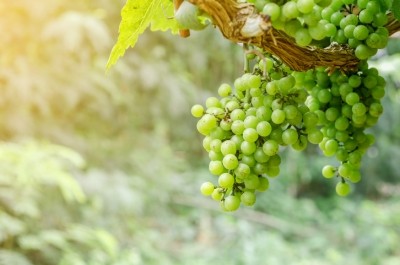Feature: organic wine
Why produce organic wine? ‘If we want to have longevity in the brand, we need to look after the soil and vineyards right now’
Organic wine accounts for a small percentage of global sales (estimated at around 2.8%): but it’s a growing market. The growing area for organic wine production has tripled over the last ten years, despite the challenges for producers in meeting strict certification and added expense of following extra rules.
For many wine producers it’s about a personal interest in eating and drinking organic produce; while for others it’s about maintaining the longevity of their land and as a consequence their business. Meanwhile, producers often cite higher quality and better tasting wine as their motivation for going organic.
BeverageDaily spoke to organic wine producers from Italy, South Africa, Greece, Bulgaria, Spain and France at world organic wine fair Millesime Bio in France (held in Occitanie, the top organic wine growing region of France, accounting for 35% of organic wine production) to put the spotlight on why organic is important to them.
What is an organic wine?
Organic wines are essentially those that are produced under the principles of organic farming, which excludes the use of chemicals or pesticides.
In the EU – which is by far the largest producer of organic wine, making up some 90% of global winegrowing organic area - organic production has been regulated since 1991. There are also rules for organic vinification. In short, wine must be made without the use of chemicals or GMOs, using only natural fertilizers such as green manure or compost, and there are restrictions or bans on certain procedures and additives, and a restriction on the total sulphite level in the finished wine.
For organic wine producers in the EU converting to organic is a long process: it takes three years and four vintages to convert to organic. However, with a number of winegrowing areas currently in conversion, this suggests the organic wine offering will increase further in the coming years.
Spain, Italy and France are the top organic wine producers: accounting for 79% of organic wine production together.
In France, organic vineyards represent 9% of total surface area of vineyards: hear more about this market from SudVinBio, the organisation representing organic wines in the south of France, on the video clip to the right.
In the US, organic wines must follow the same requirements of USDA organic certification as other products, as well as meeting the requirements of the Alcohol and Tobacco Tax and Trade Bureau, especially in regards to sulphite labeling. There is a distinction between ‘wine made with organic grapes’ and ‘organic wine’ (which also requires the yeast and other agricultural ingredients to be organic).
Organic wine markets
- Consumer interest in organic products is attributed to numerous factors: the desire to be exposed to fewer chemicals, gain more vitamins and minerals, eat locally, and support sustainable agriculture. Some consumers believe that organic wine reduces hangovers due to the reduced sulphite content.
- The six leading markets in the world for organic wine are France, Germany, the US, Italy, UK and Austria.
- In France, organic wine sales have seen average annual growth of 20% over the last seven years. For wine producers in France, one of the challenges is keeping up with consumer demand.
- Austria has the highest proportion of organic vineyard production at 9.6%.
- In Italy, organic wine represents around 2% of total wine volume. Organic wine purchases increased by 14.9% in 2016, and 109.9% in the first quarter of 2017 compared to the same period the preivous year.
- In the UK, organic wines represent 2.2% of the wine market by volume, but are predicted to see a 14.3% increase in 2017. Millennials are a key target group, who want to feel they are responsible consumers and enjoy finding out about the origins of their products.
- In Sweden, organic wine had a 17% market share by volume in 2015, up from 2.6% in 2008.
- In Switzerland, organic wine represents 2% of total wine market.








